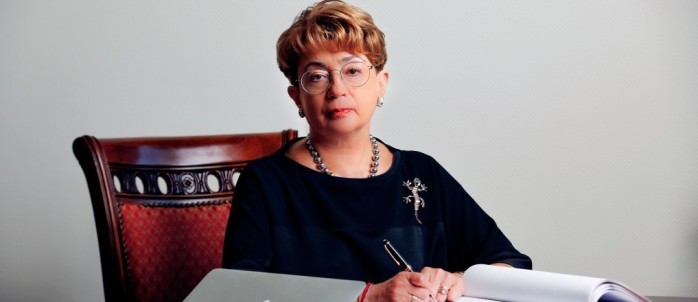
Several days after commemorating International Holocaust Remembrance Day, discussions on the topic of the Holocaust have again come up in Lithuania. In my childhood I heard everything in my family–during conversation memories of the ghetto often came to the fore, being locked in the ghetto, taken to concentration camps, about the hole where people hid. But the experience of the Holocaust was as it were one of many things which separated Jews from non-Jews. They murdered us, while others at the same time went on with their lives, went to movie theaters, went to school and studied. Over just a few months almost the entire Lithuanian Jewish community, more than 200,000 people, were exterminated. For all of my life, for the entire Soviet period, many people treated us differently. We always knew our opportunities were limited and that we were different.
Before the Holocaust in Lithuania only Lithuanians had a bigger population than Jews, but now the Jewish community only has about 5,000 members… Each one of them carries their own family’s Holocaust story. That includes both those born and raised in Lithuania, and those who have joined the Lithuanian Jewish community after arriving from Russia, Ukraine, Belarus… Every one of them could write their own history of the Holocaust, but not all have. The state has had many opportunities to explain to its citizens, especially the younger generation, the mass murder of the Jews and who the perpetrators were, in simple language accessible even to children rather than in the language of scholars and politicians. We have been asking for that for many years and have come up with many plans together on how to do this. Seventy-five years have passed and Lithuania still cannot in any way open up the topic of the role of Lithuanians in the Holocaust. Not even one Lithuanian Government has dared include the history of the Jews of Lithuania, a history cut short by the Holocaust, in school curricula. Many of the promises have never gone past the planning stage. Perhaps the experience of the Holocaust is passed on from generation to generation as does the subconscious guilt and shame of the perpetrators, and that’s the reason it appears so difficult to talk about it openly and honestly. It is probably difficult to look at what is likely the darkest and most dishonorable page in Lithuania’s history. Why have discussions of the Holocaust erupted now on the social media? Because young people have known almost nothing about it.
First president of post-Soviet independent Lithuania Algirdas Brazauskas apologized for Lithuanian collaboration in the Holocaust. His apology at the Israeli Knesset was accepted there, but the subject of much controversy and condemnation in Lithuania. But not everything associated with Jews causes turbulence in Lithuania. We have and will exert great efforts for good mutual relations without regard to what occurred during the war. We chose life in Lithuania, we are Lithuanian citizens, and we have been part of Lithuania for over 600 years. We have never called Lithuanians a nation of Jew-killers and we don’t plan to. The heroic act of the more than 800 people of Lithuania who rescued their Jewish neighbors becomes even greater in light of the number of people of this country who chose to become the implementers of the Nazi plan. We have never lost contact with the rescuers of the Jews of Lithuania. The Jewish community has sought for many years for the rescuers to be recognized as heroes in Lithuania, that they would receive material support in old age and that streets be named in their honor, and the Jewish community continues to support them.
February 1, 2016
Vilnius

